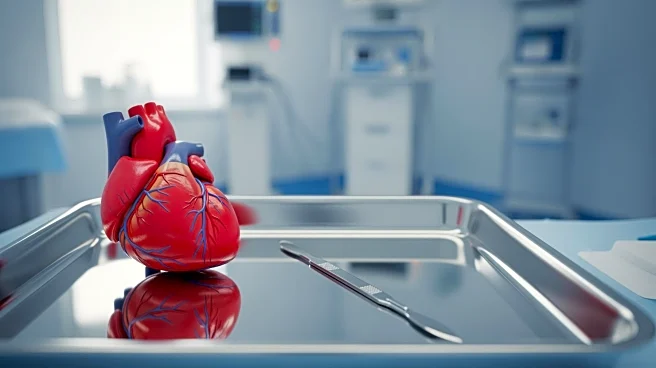What's Happening?
Former NFL quarterback Bernie Kosar is scheduled to receive a liver transplant on Monday morning. The 61-year-old, known for his time with the Cleveland Browns and the University of Miami, announced the news via social media from his hospital bed. Kosar's
transplant was initially planned for the previous weekend but was postponed due to an infection in the donor's organ. Over the past week, Kosar has undergone five procedures to address internal bleeding. He has been open about his health struggles, revealing last year that he was diagnosed with cirrhosis of the liver and Parkinson's disease. Kosar's football career spanned 12 seasons, during which he led the University of Miami to a national championship in 1983 and played for the Browns, Dallas Cowboys, and Miami Dolphins.
Why It's Important?
Kosar's health issues highlight the ongoing challenges faced by former professional athletes, particularly those who played in the physically demanding NFL. His diagnosis of cirrhosis and Parkinson's disease underscores the long-term health risks associated with professional sports. The liver transplant is a critical step in addressing his health concerns, potentially improving his quality of life. Kosar's situation brings attention to the need for comprehensive healthcare and support for retired athletes, who may suffer from chronic conditions related to their sports careers. The public support and attention his case receives may also raise awareness about organ donation and the importance of timely medical interventions.
What's Next?
Following the liver transplant, Kosar will likely undergo a period of recovery and monitoring to ensure the success of the procedure. The outcome of the transplant will be closely watched by his supporters and the sports community. Kosar's health journey may prompt discussions about the healthcare needs of retired athletes and the role of sports organizations in providing support. Additionally, his case could inspire increased advocacy for organ donation, highlighting the life-saving potential of such medical procedures.

















